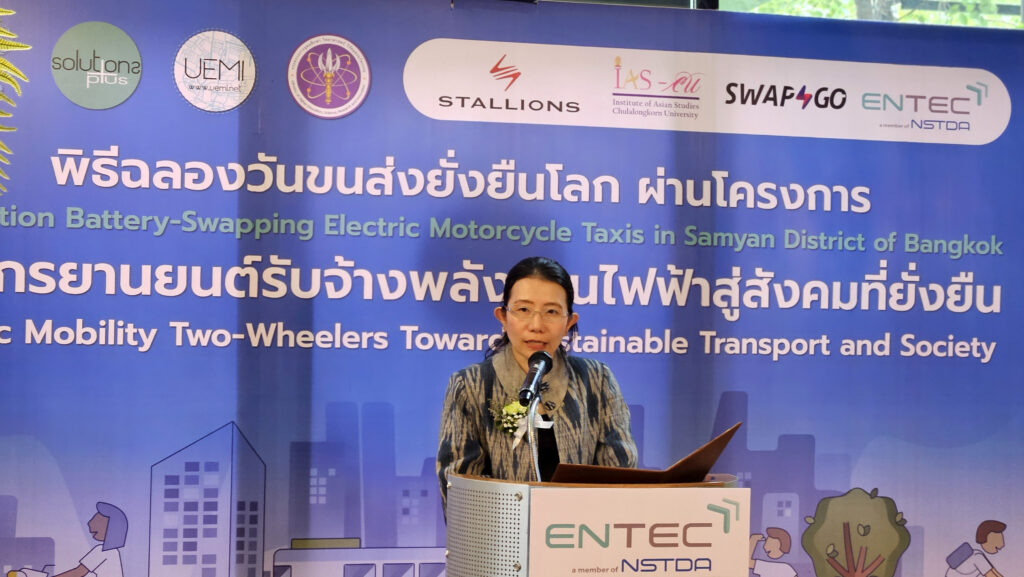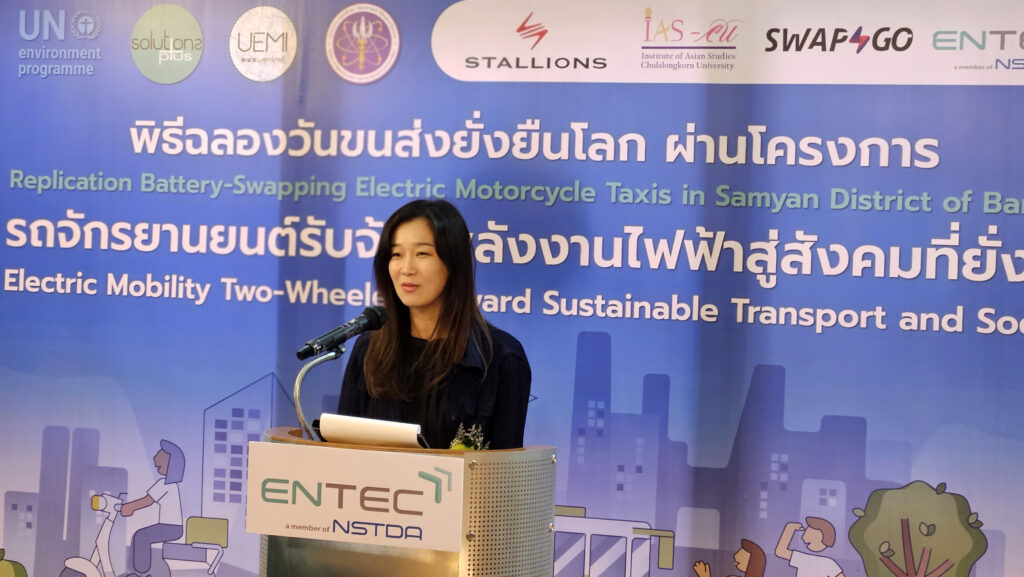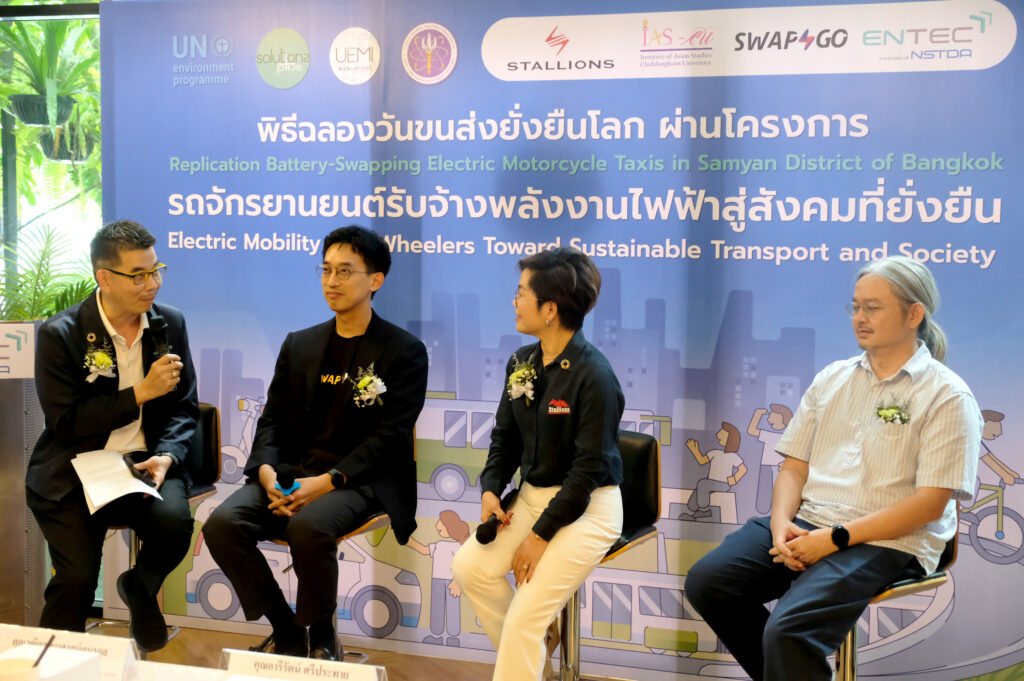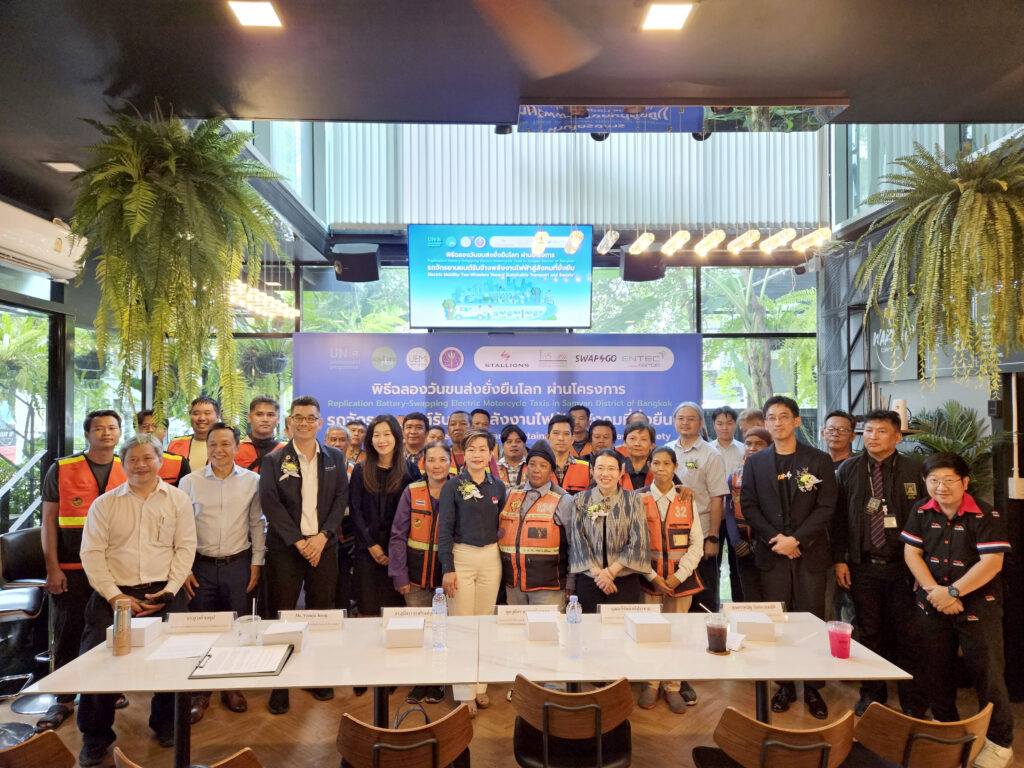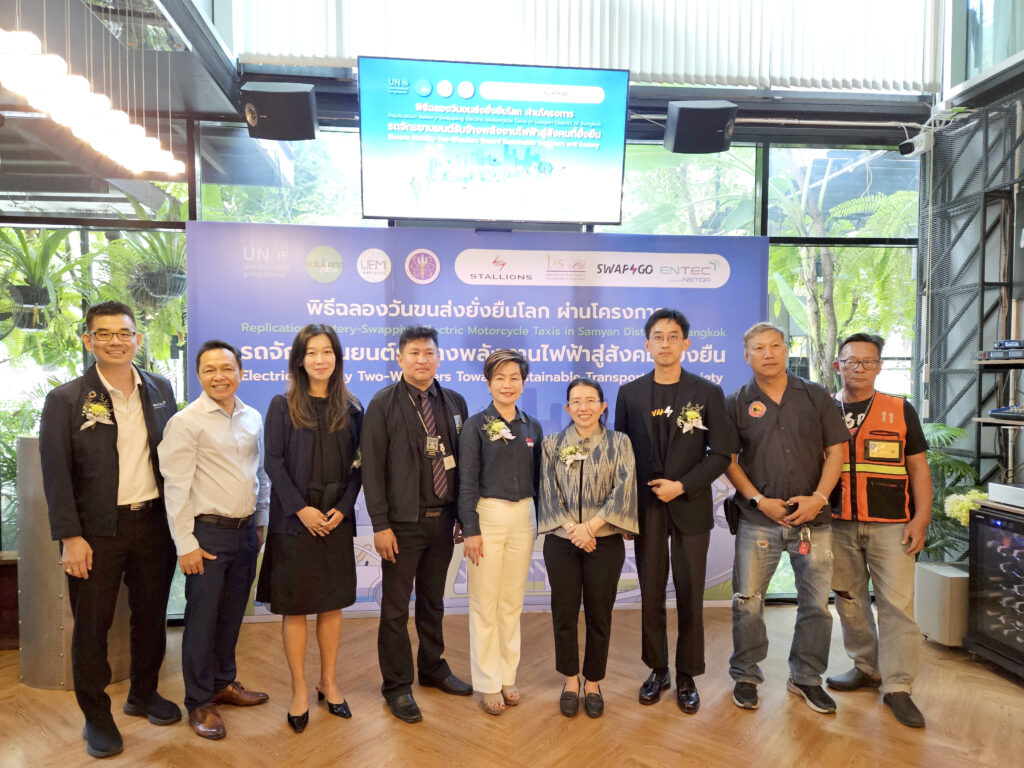On Friday, November 1, 2024 Bangkok has early celebration of World Sustainable Transport Day
In anticipation of World Sustainable Transport Day on November 26, Bangkok is charging ahead with its electric mobility ambitions. With the National Energy Technology Center (ENTEC) and other partners, UNEP launched the second phase of an innovative electric motorcycle pilot project, marking a significant step in Thailand’s journey toward sustainable transportation.
The initiative, supported by the United Nations Environment Programme (UNEP) and the European Union-funded SOLUTIONSplus project, brings together key players including The Stallions Co., Ltd., Swap & Go Co., Ltd., and Chulalongkorn University’s Institute of Asian Studies. Thirty motorcycle taxi drivers have volunteered to pioneer this electric transformation of Bangkok’s streets.
The timing couldn’t be more crucial. With a fleet of 44 million vehicles, Thailand’s transport sector accounts for approximately one-third of the country’s annual carbon dioxide emissions. The shift to electric vehicles is part of Thailand’s broader strategy to combat both climate change and a growing public health crisis – air pollution alone could claim nearly 25,000 lives annually in Thailand by 2030 without immediate action.
The initiative builds on earlier successes, including a previous pilot that demonstrated impressive results: over 759,000 kilometers traveled by electric taxis, 20% reduced energy consumption compared to traditional motorcycles, and nearly 39 tons of CO2 emissions avoided.
Bangkok’s electric mobility push aligns with Thailand’s ambitious national targets. The country aims to have electric vehicles represent 40% of new two-wheeler registrations by 2030, ramping up to 100% by 2035. This transformation is particularly significant in Bangkok, where over 60% of commuters are young professionals aged 20-40, and many households rely on two-wheelers for daily transportation.
The pilot project will monitor vehicle performance and help strengthen the electric mobility ecosystem, paving the way for a broader transition to zero-emission transport. It’s a crucial step in Thailand’s race to keep global temperature rise below the critical 1.5°C threshold while creating a cleaner, more sustainable urban environment for its citizens.
